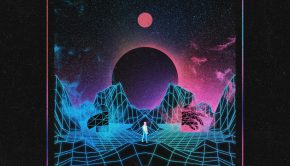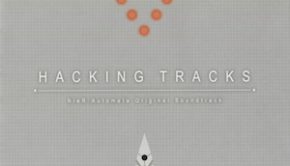Bear McCreary Interview: Battlestar Galactica Composer’s Break Into Gaming
 Composer Bear McCreary has attained legendary status among fans ofBattlestar Galactica. In recent years, he has branched out to score new television series and his debut film projects. However, perhaps his most fascinating works have been on video games, including Dark Void and the newly released SOCOM 4: U.S. Navy SEALs.
Composer Bear McCreary has attained legendary status among fans ofBattlestar Galactica. In recent years, he has branched out to score new television series and his debut film projects. However, perhaps his most fascinating works have been on video games, including Dark Void and the newly released SOCOM 4: U.S. Navy SEALs.
In this highly informative interview, McCreary reveals what to expect fromSOCOM 4, noting his score is both technically and creatively pioneering. He also discusses a spectrum of other work, emphasising the individual distinctions and conserved features of each project. Along the way, he reminiscences about his Mega Man inspirations for Dark Void Zero, considers the evolution of his gamelan sound from Battlestar Galactica, and reflects his plans for Eureka and The Walking Dead for the upcoming television season.
Interview Credits
Interview Subject: Bear McCreary
Interviewer: Matt Diener
Editor: Chris Greening
Coordination: Kevin Porter, Beth Krakower
Interview Content
Matt: Bear McCreary, many thanks for talking to us today about your recent projects. This week,SOCOM 4: U.S. Navy SEALs will be released for PlayStation 3. Could you elaborate on why you think your score for this reboot will be a special one?
Bear McCreary: The score for SOCOM 4 is going to be special for a number of reasons. Generally I divide scores into two categories — one that’s technical and one that’s creative. Often, there’s a lot of overlap in those two categories. On the technical level, the game’s score is implemented in a way that I think makes it unique: we really strove to have a high level of adaptability in the music, one that surpasses anything that we’ve heard in games to this point. Ultimately, our goal was to make it possible to play the single-player campaign from beginning to end and never hear the same theme twice no matter how long it takes you to do that.
Anybody who’s worked in games or even played games knows that video game music that is starting to sound familiar. In the great games that we’ve played, and even in recent games, you can always find moments where you’re always dying at the same place multiple times and every time you come back the music is the same. Ultimately, I find that takes away the tension and that’s what video game music is not supposed to do. It’s supposed to heighten tension. We tried to ameliorate that problem and make it so that the music is always changing. This will provide tension for the gamer.
Now, to go back the creative level, SOCOM 4 is exciting because it makes the franchise more cinematic, more character-based… just more narrative. You’ll hear strong character themes that evolve as the game goes on and the story progresses. It’s a much more nuanced score than previous SOCOM games would have even aspired to.
In these regards, I’m really excited about it. Technically, it’s pushing the envelope and creatively it’s bringing the SOCOM franchise into the era of modern gaming.

Matt: Composing and recording music for such mixed ensembles results in various challenges, especially with your stated goal in SOCOM 4 of having a player never hear the same song twice. How did you ensure the final tracks were cohesive ones? Did you experiences on the Battlestar Galactica franchise help you?
Bear McCreary: Yes, absolutely. I found that the work I’ve done in film and television translates really well to the work that I’m doing in video games because ultimately, at the end of the day, I’m just telling a story. A lot of the technical requirements may be different and some of the delivery is different, but ultimately I’m using music to help communicate a story. With that in mind, keeping the themes on a game score coherent is one of the most important things you can do.
If you look at all the projects I’ve taken on — The Walking Dead, Battlestar Galactica, or The Cape — I always like to find the sound that signifies that project. And with SOCOM 4 we took that philosophy to the extreme and I think that the score is one of the most distinctive projects, musically, that I’ve ever been involved in.
Matt: The score for SOCOM 4 combines full orchestral performances with traditional Asian instruments. Do you feel this hybridised approach complements the scenario and gameplay of SOCOM 4? Or was it something you used to find that unified sound that you just mentioned?
Bear McCreary: It does both! The ultimate inspiration for using a western and eastern orchestras stems from the story, which takes place in southeast Asia. The story is about conflict between western and eastern forces as well as the conflict between military and private military forces so ultimately having that dichotomy in the score helps underline that idea — that we’re the west invading the east.
When we recorded this up at the Skywalker Ranch, you hear the western symphony orchestra basically battling a gamelan orchestra that we recorded in the Warner Brothers soundstage in Burbank and it creates a really neat representation of the story through their conflict.
Matt: Trailers indicate that the score for SOCOM 4 will be a thematically rich one. Could you elaborate on any defining themes we should expect for the score?
Bear McCreary: It’s tricky to pick one, but honestly the piece that most encapsulates the game score is the main title. It’s the first track on the soundtrack album and I created an overture in the sense that an old Broadway musical, or a classical opera, would have an overture.
In the SOCOM 4 main title you hear all the primary themes, the full string orchestra, the gamelan orchestra, Asian soloists, and some electronics. You’ll hear a little taste of everything that you’ll hear as you play through the game and, even though the piece mostly focuses on the main theme, it’s a nice introduction to the musical world. In the game, and as you listen, you’ll hear all of these fantastic Asian instruments isolated and you’ll develop a feel for what they sound like.
Matt: SOCOM 4 is your second major video game score to date. How would you compare your score and experiences for this title with that of Dark Void?
Bear McCreary: They were similar. They were very creatively challenging and rewarding projects. I think the biggest difference between Dark Void and SOCOM 4 is that Dark Void took place a fantastical science-fiction environment and it had a pulpy, 1930’s aesthetic to it that really gave me the freedom to do whatever I could imagine. When you listen to the Dark Void album — which is, I might add, one of the most beautiful records I’ve ever put out — it has beautiful symphonic themes, tribal percussion, rock and roll, bizzaro electronics, all of these interesting and fascinating sounds that don’t necessarily gel together, so I was able to create a world that exists in and of itself.

SOCOM 4 takes place in the contemporary world and is set in a fictionalized country that is clearly inspired by ones in southeast Asia. There was an equal amount of creative freedom with SOCOM 4, but I wanted to respect the musical traditions of that part of the world. I wanted to make sure that I wasn’t using Asian sounds incorrectly, and that I wasn’t using instruments that weren’t from that part of the world. In that regard, it was more limiting but in a way it was like focusing a laser beam whereasDark Void was more like a flood light.
With SOCOM 4, I was able to really focus all of my energy on exploring Asian sounds and I learned so much about gamelan orchestras and how taiko ensembles work. A lot of this is research I had done while doing Battlestar Galactica and I was able to expand upon them and extrapolate a bit further because I wanted to make sure that this music was Asian. It needed to be authentic.
Matt: If I can talk about Dark Void Zero for a minute…
Bear McCreary: Please!
Matt: You endeared to old-school gamers by adapting the score for Dark Void for its retro counterpartDark Void Zero. Did you expect a theme, originally composed as an April Fool’s Joke, to become the inspiration for an actual game?
Bear McCreary: When I composed an 8-bit version of the Dark Void theme, I did it because I found out that Keiji Inafune was a producer on the game and was in the office listening to my music. As I’m sure you know, Inafune-san created the Mega Man franchise and I think he’s ultimately one of the most influential game developers of all time. So I thought this would be a fun little gift to him — a Mega Man style of the Dark Void theme — and I gave it to all the people at Capcom whom I was working with. I never anticipated that this would inspire an entire game!
Ultimately, it did and when Dark Void came out, they also developed Dark Void Zero for the iPhone, PC and DSi. I was able to go back to that 8-bit sound and expand it. I did a full 8-bit tour for the entire game which was as much fun as doing the full symphonic orchestral score… just in a completely different genre.
Matt: What retro scores influenced you on this title?
Bear McCreary: I find that 8-bit scores influence me even when I’m not writing 8-bit music. They captured something musically in those games that a lot of video games today fail to capture which is melody. As goofy as it sounds to say that 8-bit music is better video game music — it’s not in all cases — there’s something about those melodies because they had nothing else to draw from. In the 8-bit days you didn’t have the tone color, timbre or recording; all you really had was the ability to communicate a melody so that forces you to really overcompensate and write really great melodies.
That’s something that I kept in the back of my mind when I was doing Dark Void and SOCOM 4 — I wanted a melody that was as strong as melodies were back in the 8-bit days. That’s the reason why it worked so well when I did Dark Void Zero and when I made that track is because Dark Void‘s main theme is a really catchy tune, whether in 8-bit or through a full symphony orchestra. It’s one of the best melodies that I’ve ever written in my life and it translated perfectly to that 8-bit style.
But to answer your question about what are my favourite 8-bit scores: Mega Man 2, Mega Man 3, Mega Man 4, honestly there are more than I can possibly count but those are the ones that really stand out.

Matt: To switch a bit, in addition to video games, you scored three television series over the past season: Eureka, The Walking Dead, and The Cape. How were you able to fit in composing and recording for so many projects?
Bear McCreary: I don’t sleep a lot (laughs). The schedules are tough, but thankfully, of the three shows that you cited, two of them are on cable and cable has a very different schedule than network television. Generally I’m able to weave my way through the schedules and I usually don’t have to work on more than one show at any given time. Still, I don’t really get a lot of time to sleep when I have three shows to do.
Matt: I can imagine. About those shows… The Cape, Caprica, and Trauma were prematurely cancelled despite having a considerable fanbase. Was this disappointing for you or partly expected, given the highly competitive nature of primetime broadcasting?
Bear McCreary: Of course. It’s always disappointing when something you work on — and really invest yourself emotionally in — does not continue. At the same time, in all three of those shows, I was able to explore what I wanted to explore.
Looking at The Cape as a perfect example, of course I’m disappointed that there wasn’t another season where I could write big, epic superhero music and record it with an 80-piece orchestra every week. But in looking at that from the other side, from the artistic perspective, I was able to record a full season of a superhero show with an 80-piece orchestra every week! So I’m very proud of the work I’ve done on those series and it is good to know that it will live on in other media for people to discover as the years go on.
In the case of The Cape and Caprica, I am in the process of working on a soundtrack album release for both of those so that fans can hear all the things that I put in the score that sometimes get lost in the final edit.
Matt: I’m sure their fans will be happy to read that! When you were talking about exploring the world of a project, Eureka and The Walking Dead have been picked up for new seasons. Are you excited about returning to these projects and, in particular, developing the musical universe of the latter?
Bear McCreary: Very much so! I’m very excited about both of those projects, but let me addressEureka first. Typically when you get into season five of a television show, you are kind of settled. You’ve found your rhythm and, in the case of musicians, you’ve found your sound. But Eureka fans know that in the past couple seasons, the series has really begun to explore new character arcs and season five is going to continue that. In many ways, season five is going to be very different because it’s a dynamic and evolving show and I am very grateful that I get to work on it.
The Walking Dead is an exciting situation for a different reason. We’re going explore a lot of new possibilities, but that is because we only did six episodes for season one. There is so much more to uncover and I’m really looking forward to getting back into that and continuing to explore this very dark and very human drama.
Matt: This year, you have also made your debut on feature films with Step Up 3D and The Knights of Badassdom. Were these experiences satisfying ones and would you like to pursue film scoring further in the future?
Bear McCreary: Those experiences were — and are, since I’m still in the process of working on Knights — extremely satisfying ones in many ways. The thing that makes television and film different is that a film ends but in television you can explore the story for a long time.
At this point, I’m certainly open to doing more films, but at this point I’m just looking for exciting projects where I can tell a story because that’s what excites me. Whether that story will be told in a game, on television, or in a film it ultimately doesn’t make that much difference.

Matt: Many thanks for your time today, Bear McCreary. Do you have anything else you’d like to say about SOCOM 4? Would you like to see a physical soundtrack release for this title?
Bear McCreary: SOCOM 4 will have a soundtrack release. I might as well say that it’s out on iTunes now, but the CD release is coming out in May. That will be a double-disc set that will feature about an hour of music that’s not on the digital release. So fans that really want to have the full experience will definitely want to pick up the CD set. If anyone wants to listen to that main title, it’s up on iTunes now.
Matt: Terrific. Thank you again, and best wishes for the future.
Special thanks to Sony Computer Entertainment, McCreary’s publicist Beth Krakower of CineMedia Promotions, and McCreary’s assistant Kevin Porter.
Posted on April 1, 2011 by Matt Diener. Last modified on March 1, 2014.














